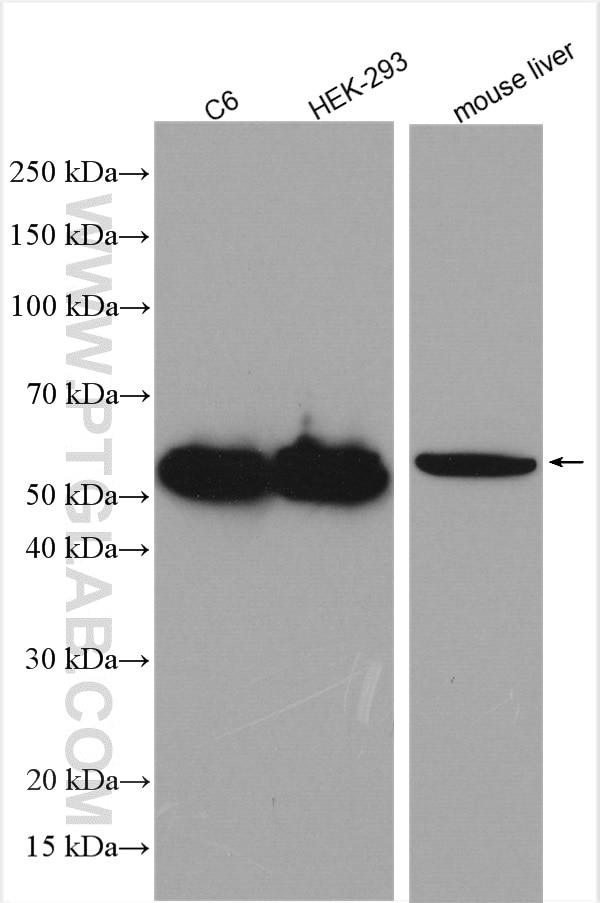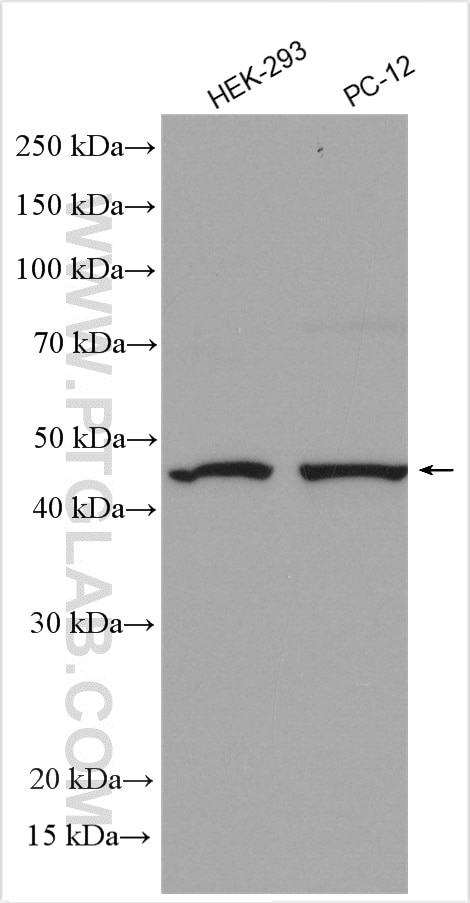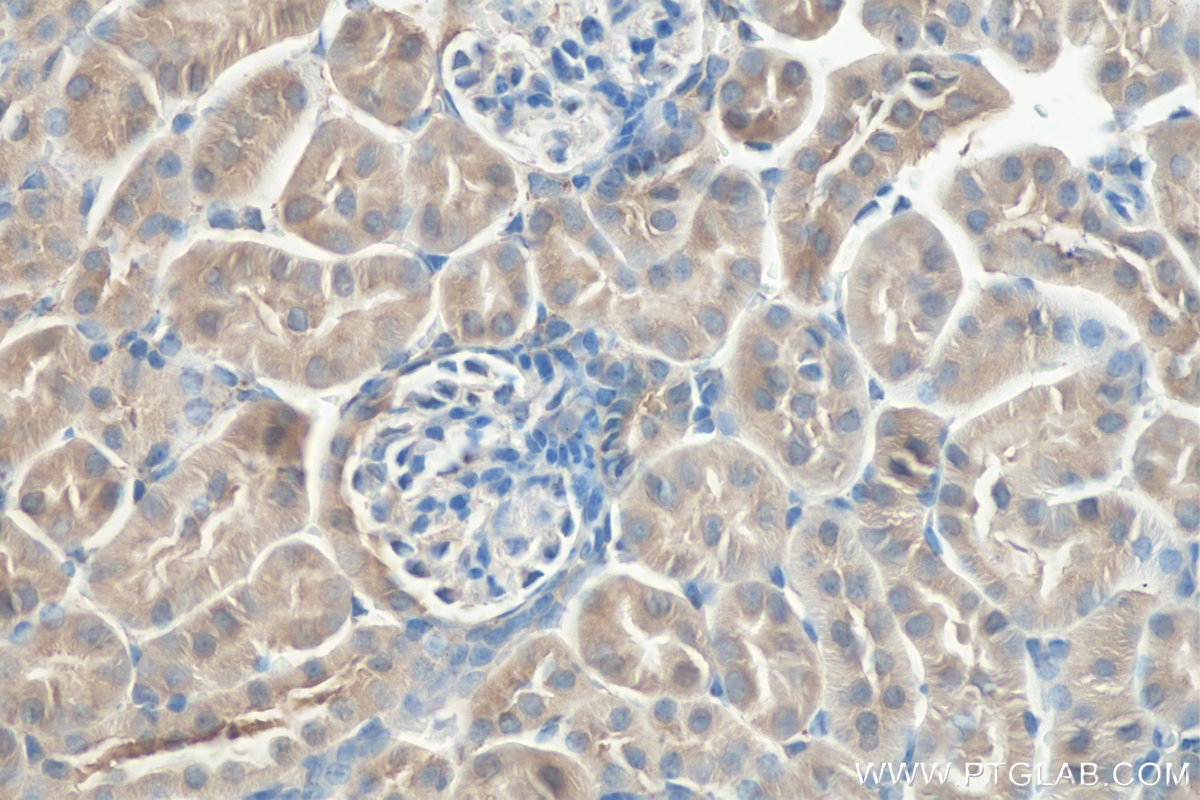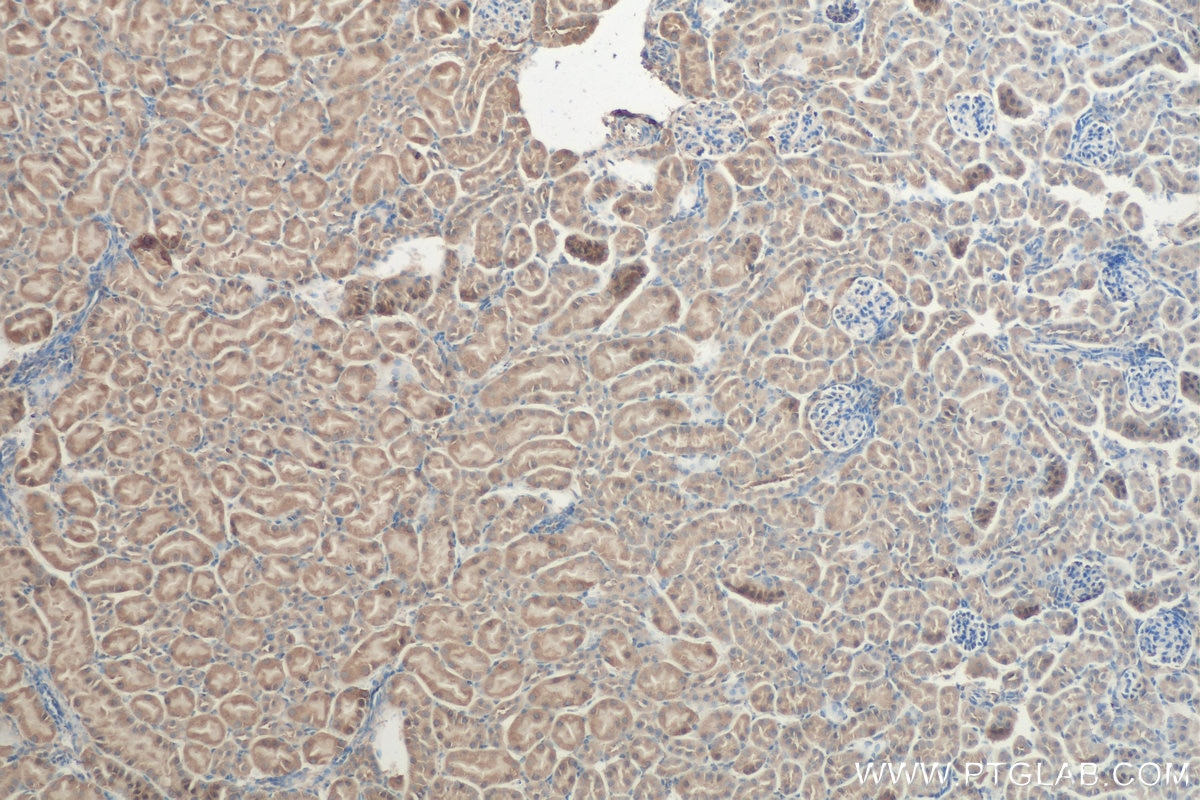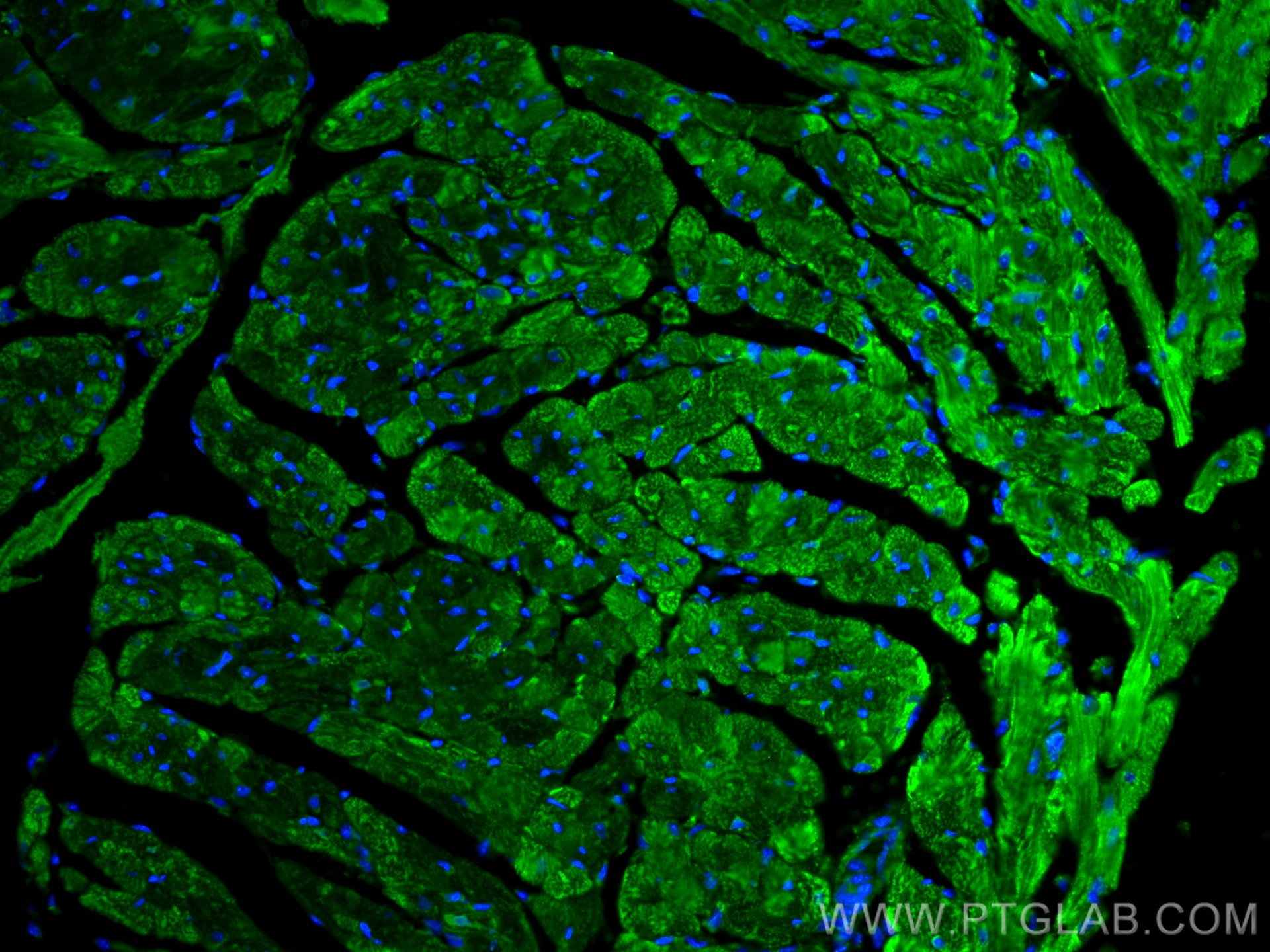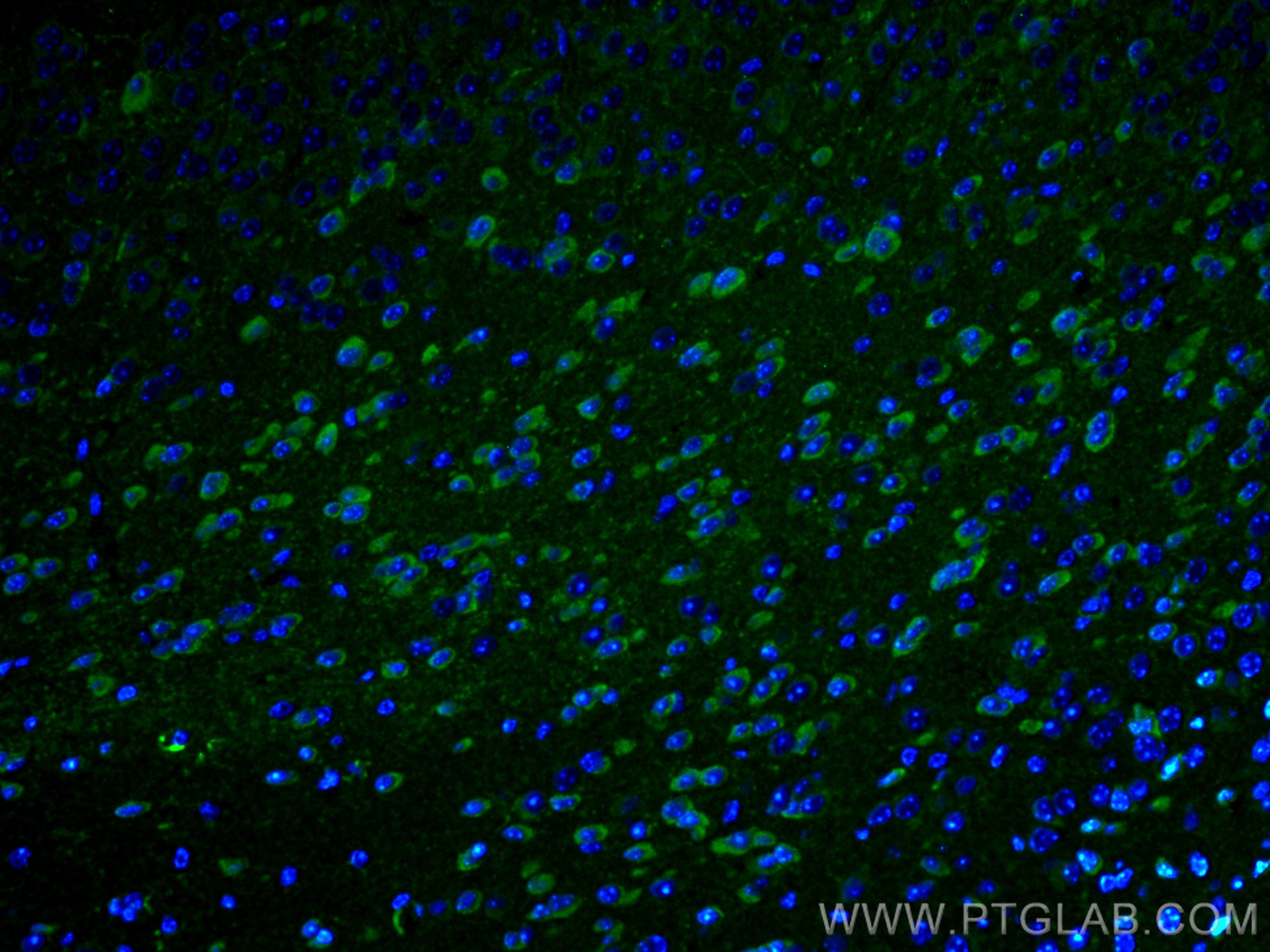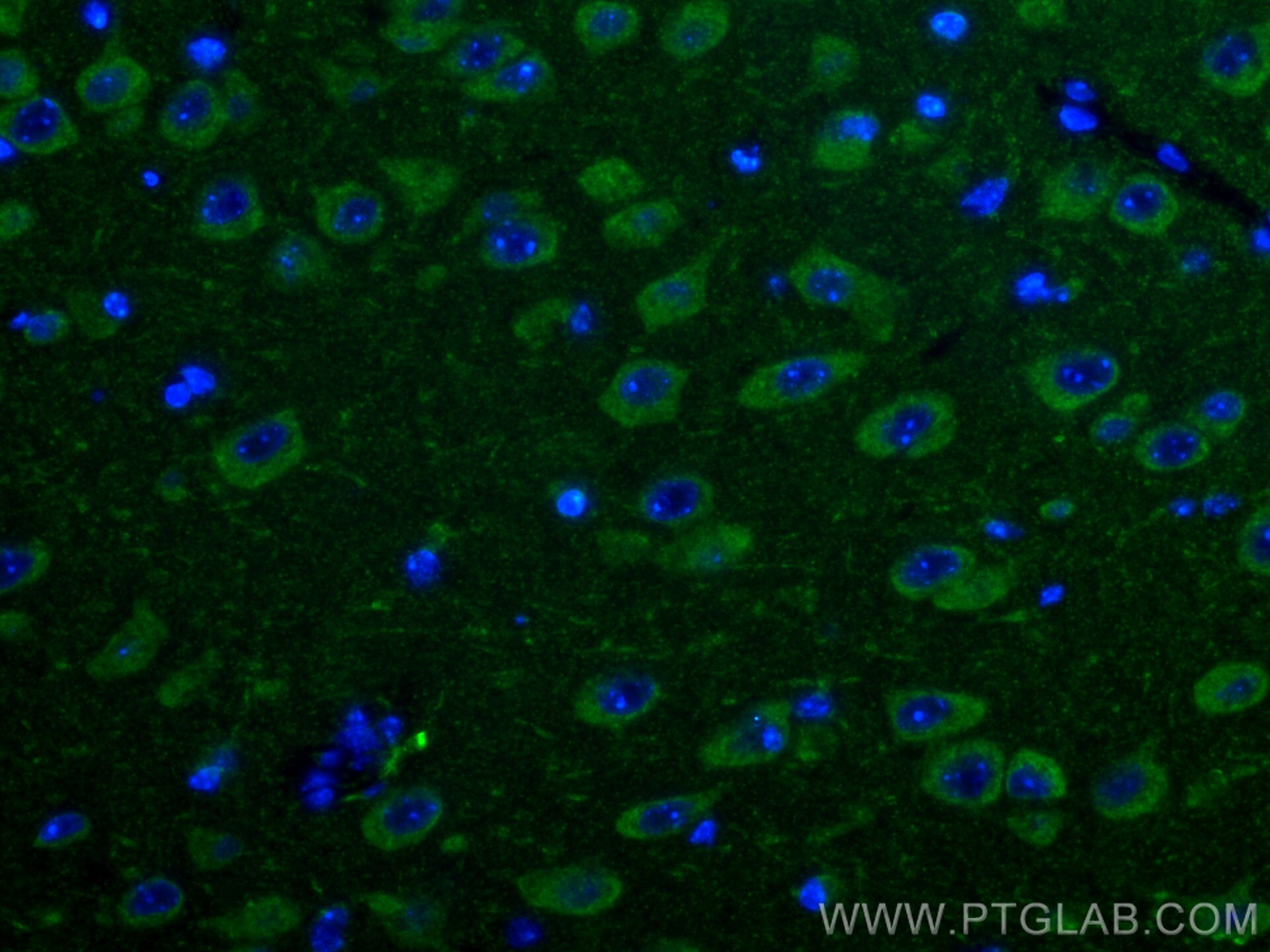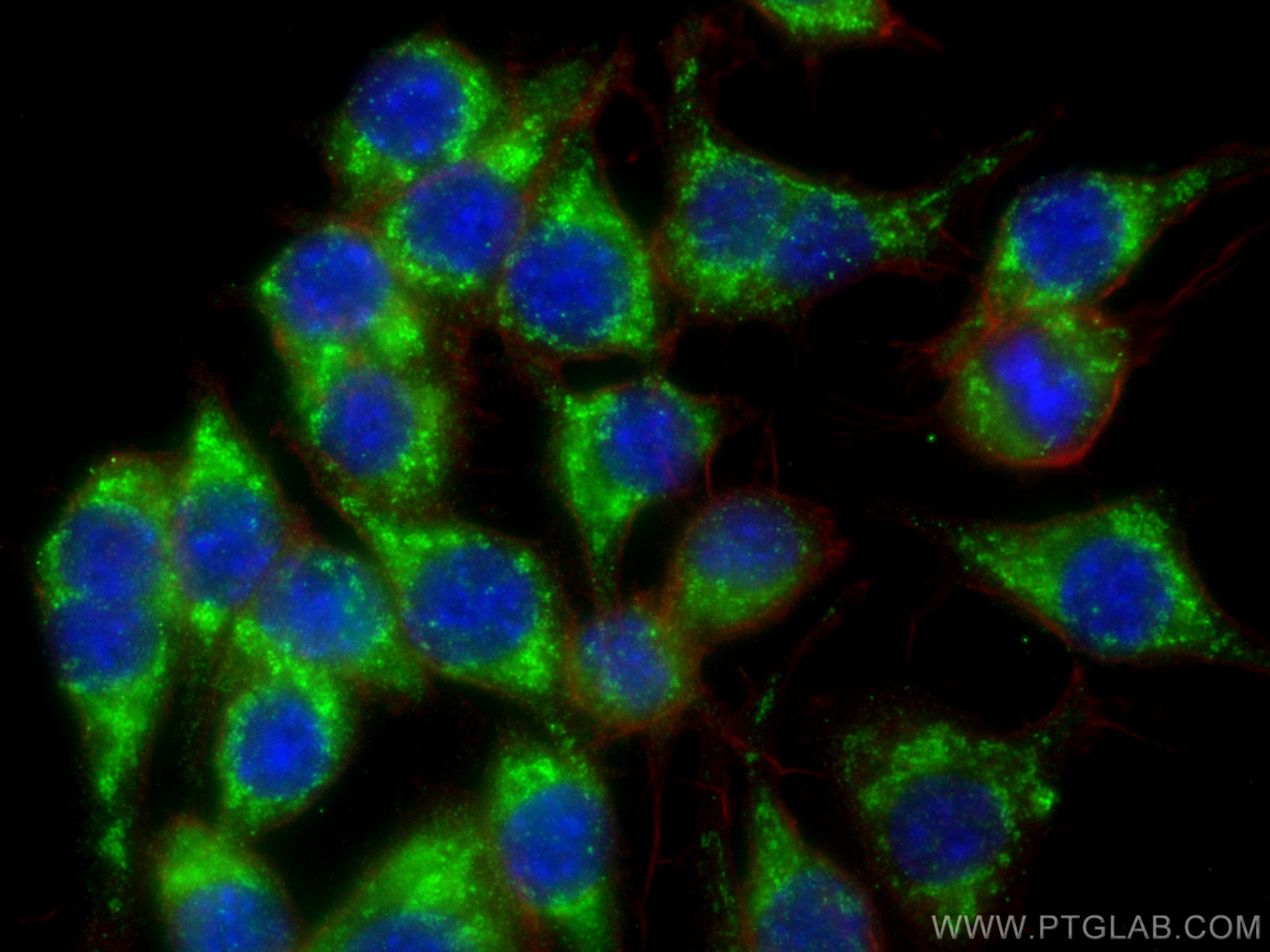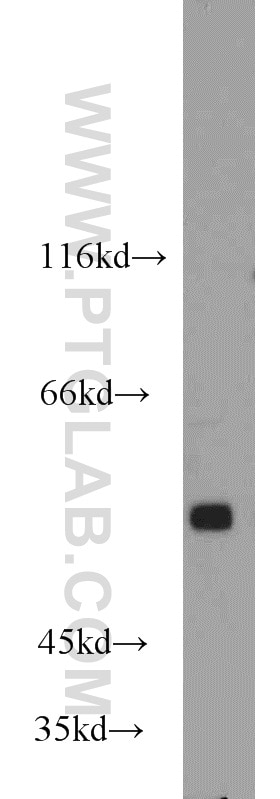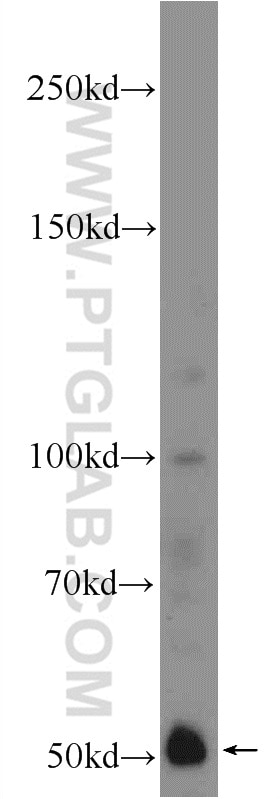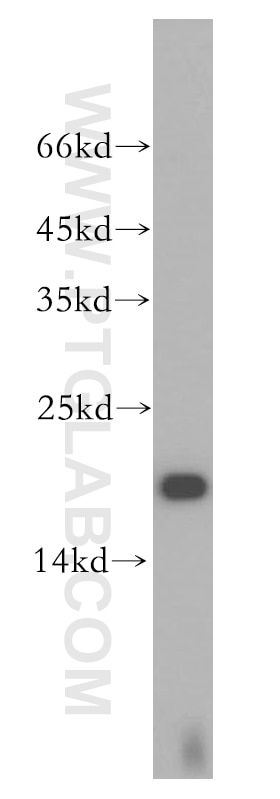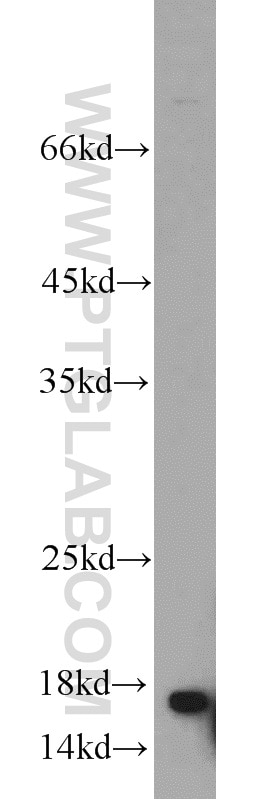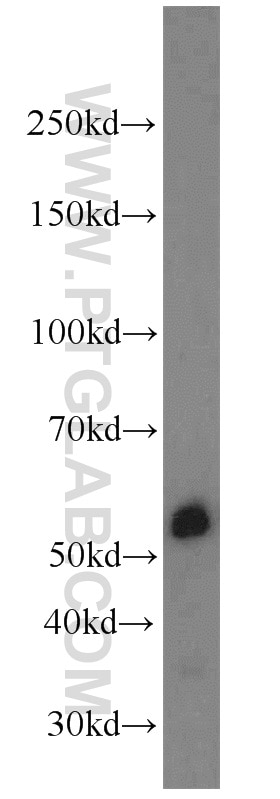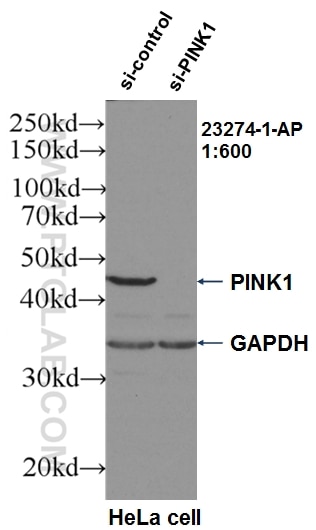- Phare
- Validé par KD/KO
Anticorps Polyclonal de lapin anti-PARK2/Parkin
PARK2/Parkin Polyclonal Antibody for WB, IHC, IF/ICC, IF-P, ELISA
Hôte / Isotype
Lapin / IgG
Réactivité testée
Humain, rat, souris et plus (5)
Applications
WB, IHC, IF/ICC, IF-P, IP, CoIP, ELISA
Conjugaison
Non conjugué
236
N° de cat : 14060-1-AP
Synonymes
Galerie de données de validation
Applications testées
| Résultats positifs en WB | cellules C6, cellules HEK-293, cellules PC-12, tissu hépatique de souris |
| Résultats positifs en IHC | tissu rénal de souris, il est suggéré de démasquer l'antigène avec un tampon de TE buffer pH 9.0; (*) À défaut, 'le démasquage de l'antigène peut être 'effectué avec un tampon citrate pH 6,0. |
| Résultats positifs en IF-P | tissu cardiaque de souris, tissu cérébral de souris |
| Résultats positifs en IF/ICC | cellules RAW 264.7, |
Dilution recommandée
| Application | Dilution |
|---|---|
| Western Blot (WB) | WB : 1:1000-1:4000 |
| Immunohistochimie (IHC) | IHC : 1:50-1:500 |
| Immunofluorescence (IF)-P | IF-P : 1:50-1:500 |
| Immunofluorescence (IF)/ICC | IF/ICC : 1:200-1:800 |
| It is recommended that this reagent should be titrated in each testing system to obtain optimal results. | |
| Sample-dependent, check data in validation data gallery | |
Applications publiées
| KD/KO | See 10 publications below |
| WB | See 211 publications below |
| IHC | See 19 publications below |
| IF | See 56 publications below |
| IP | See 3 publications below |
| CoIP | See 3 publications below |
Informations sur le produit
14060-1-AP cible PARK2/Parkin dans les applications de WB, IHC, IF/ICC, IF-P, IP, CoIP, ELISA et montre une réactivité avec des échantillons Humain, rat, souris
| Réactivité | Humain, rat, souris |
| Réactivité citée | rat, bovin, Humain, Lapin, porc, poulet, singe, souris |
| Hôte / Isotype | Lapin / IgG |
| Clonalité | Polyclonal |
| Type | Anticorps |
| Immunogène | PARK2/Parkin Protéine recombinante Ag5092 |
| Nom complet | Parkinson disease (autosomal recessive, juvenile) 2, parkin |
| Masse moléculaire calculée | 52 kDa |
| Poids moléculaire observé | 42-52 kDa |
| Numéro d’acquisition GenBank | BC022014 |
| Symbole du gène | Parkin |
| Identification du gène (NCBI) | 5071 |
| Conjugaison | Non conjugué |
| Forme | Liquide |
| Méthode de purification | Purification par affinité contre l'antigène |
| Tampon de stockage | PBS avec azoture de sodium à 0,02 % et glycérol à 50 % pH 7,3 |
| Conditions de stockage | Stocker à -20°C. Stable pendant un an après l'expédition. L'aliquotage n'est pas nécessaire pour le stockage à -20oC Les 20ul contiennent 0,1% de BSA. |
Informations générales
Parkin, a RING-type E3 ubiquitin-protein ligase, is involved in the ubiquitination pathway and contributes to protection from neurotoxicity induced by unfolded protein stresses. Its ubiquitin-protein ligase activity promotes the degradation of a variety of proteins including itself. Mutations in Parkin are implicated in the pathogenesis of autosomal recessive familial Parkinson's disease. It has 8 isoforms produced by alternative splicing with molecular weights of 24, 31, 36 and 42-52 kDa. Sometimes an additional band of 70 kDa or 110 kDa may be detected, which is caused by ubiquitination modification or formation of Parkin complex (PMID: 10976934, PMID: 18190519).
Protocole
| Product Specific Protocols | |
|---|---|
| WB protocol for PARK2/Parkin antibody 14060-1-AP | Download protocol |
| IHC protocol for PARK2/Parkin antibody 14060-1-AP | Download protocol |
| IF protocol for PARK2/Parkin antibody 14060-1-AP | Download protocol |
| Standard Protocols | |
|---|---|
| Click here to view our Standard Protocols |
Publications
| Species | Application | Title |
|---|---|---|
Nat Commun Augmented temperature fluctuation aggravates muscular atrophy through the gut microbiota | ||
Acta Pharm Sin B Histone deacetylase inhibitors inhibit cervical cancer growth through Parkin acetylation-mediated mitophagy. | ||
Acta Pharm Sin B Engineering cannabidiol synergistic carbon monoxide nanocomplexes to enhance cancer therapy via excessive autophagy | ||
Autophagy Increased mitochondrial fission promotes autophagy and hepatocellular carcinoma cell survival through the ROS-modulated coordinated regulation of the NFKB and TP53 pathways. | ||
Redox Biol Genistein mitigates senescence of bone marrow mesenchymal stem cells via ERRα-mediated mitochondrial biogenesis and mitophagy in ovariectomized rats |
Avis
The reviews below have been submitted by verified Proteintech customers who received an incentive forproviding their feedback.
FH Ajte (Verified Customer) (03-08-2022) | It works well for me
|
FH Elyssa (Verified Customer) (11-11-2019) | This antibody worked well for me for one cell line (I had tried detecting the protein in 3 cells lines, and only one cell line appeared to have expression. However, I have not looked into this further and cannot say if this has to do with the antibody, or differential expression across lines). Overall, I was happy with the antibody.
|
